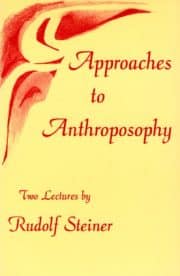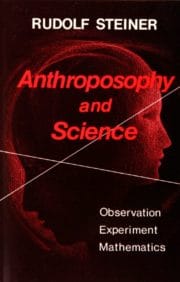Healing the Social Organism
17 lectures, Dornach and Bern, Switzerland March 20 – July 18, 1920 (CW 198)
Speaking just months after World War I, Rudolf Steiner urges his audience to wake up to the practical relevance of spiritual knowledge. Serious engagement with contemporary spiritual-scientific concepts can arouse healthy forces of the will, which in turn facilitate constructive action in the surrounding world. Conversely, ideas that are mere remnants of a previous age—echoed in empty phrases and dogmas—serve only to hinder our ability to think with the consciousness demanded by our times, thus destroying any potential for true social initiative.
The historical context of these lectures was disastrous, including widespread inflation, hunger, homelessness, and political extremism. Moreover, Steiner states that social conditions will only worsen unless people engage with modern spiritual impulses. Thus, in contrast to the retarding phenomenon of nationalism and the contemporary caricature of democracy, he introduces his future-oriented concept of social threefolding.
Steiner discusses manifold challenges, including the decline of the West and the outmoded spiritual impulses of Jesuitism and Freemasonry, as well as a positive path for an ascent of Western societies, true spiritual medicine, the real message of Easter, and the Archangel Michael’s victory. Steiner also speaks in detail about the role and structure of the Catholic Church, the historic use of encyclicals, and the doctrine of papal infallibility.
This first full translation of this lecture course features an introduction by Dorothy Hinkle-Uhlig, as well as notes and an index. This volume is a translation from German of Heilfaktoren für den sozialen Organismus (GA 198).
About the Author
Rudolf Steiner (b. Rudolf Joseph Lorenz Steiner, 1861–1925) was born in the small village of Kraljevec, Austro-Hungarian Empire (now in Croatia), where he grew up. As a young man, he lived in Weimar and Berlin, where he became a well-published scientific, literary, and philosophical scholar, known especially for his work with Goethe’s scientific writings. At the beginning of the twentieth century, he began to develop his early philosophical principles into an approach to systematic research into psychological and spiritual phenomena. Formally beginning his spiritual teaching career under the auspices of the Theosophical Society, Steiner came to use the term Anthroposophy (and spiritual science) for his philosophy, spiritual research, and findings. The influence of Steiner’s multifaceted genius has led to innovative and holistic approaches in medicine, various therapies, philosophy, religious renewal, Waldorf education, education for special needs, threefold economics, biodynamic agriculture, Goethean science, architecture, and the arts of drama, speech, and eurythmy. In 1924, Rudolf Steiner founded the General Anthroposophical Society, which today has branches throughout the world. He died in Dornach, Switzerland.













Reviews
There are no reviews yet